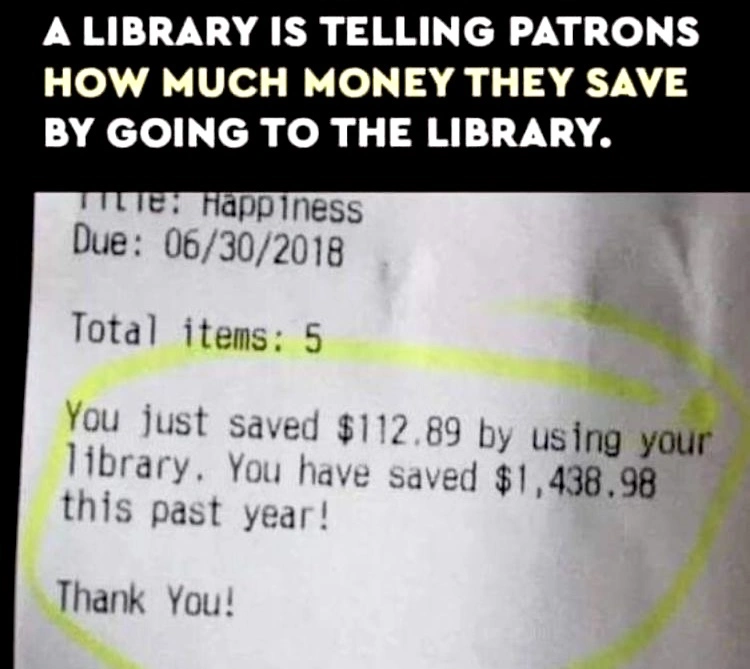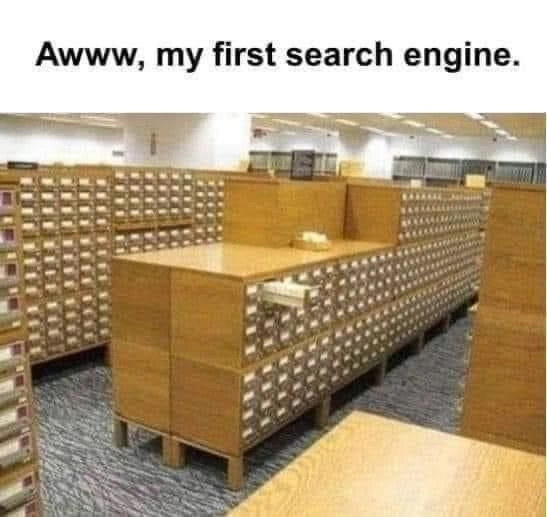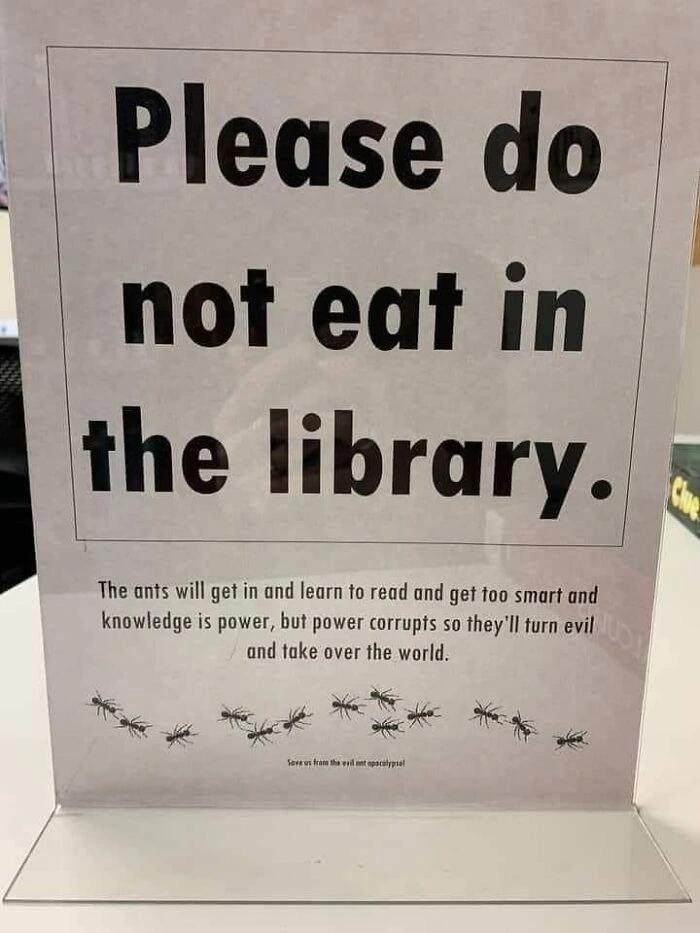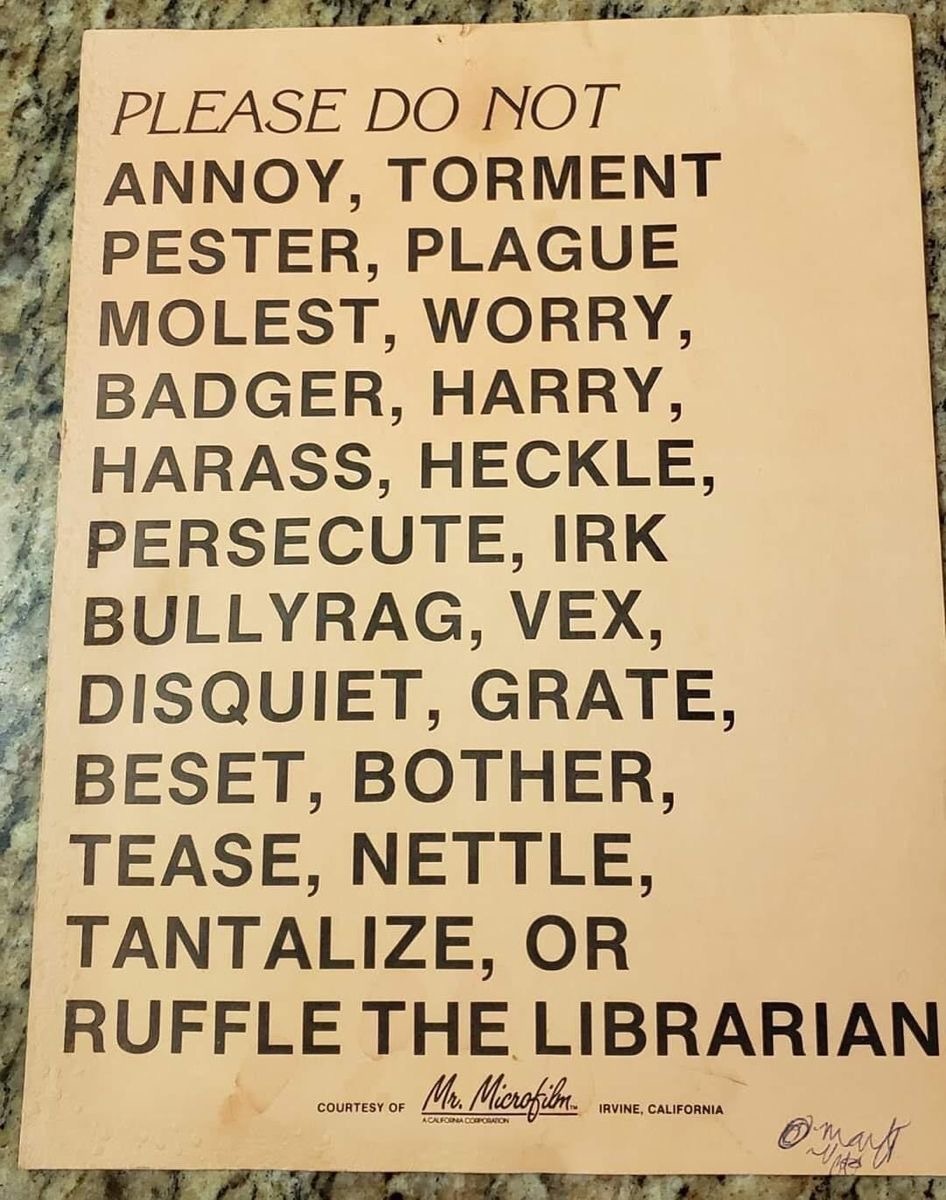#libraries
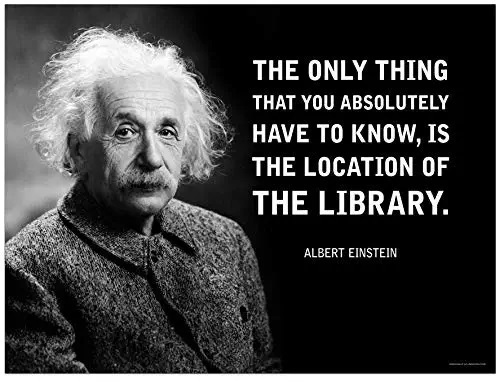
#libraries #einstein
GAWD! Let us hope US Republicans don't continue to advance their goal of banning books and destroying libraries.

#libraries
Salt Lake City Public Library
I have to close my eyes all during the time I'm on the glass elevator. I just can't look - going up or coming down.
But does it have a seed library like ours does?
♲ DoomsdaysCW - 2024-11-24 15:52:23 GMT
And here in #Maine...Borrow more than books at Maine public #libraries
Check out anything from musical instruments to microscopes from Maine’s #LibrariesOfThings
Published Winter 2023
greenhealthymaine.com/blog/mai…
#MaineLibraries #PublicLibraries #LibraryOfThings #MuseumPasses #Tools #Games #ScienceKits #Astronomy #NatureKits #Gardening #Camping #MusicalInstruments #Cooking #SolarPunkSunday
“I’m completely library educated. I’ve never been to college. I went down to the library when I was in grade school in Waukegan, and in high school in Los Angeles, and spent long days every summer in the library. I used to steal magazines from a store on Genesee Street, in Waukegan, and read them and then steal them back on the racks again. That way I took the print off with my eyeballs and stayed honest. I didn’t want to be a permanent thief, and I was very careful to wash my hands before I read them. But with the library, it’s like catnip, I suppose: you begin to run in circles because there’s so much to look at and read. And it’s far more fun than going to school, simply because you make up your own list and you don’t have to listen to anyone. When I would see some of the books my kids were forced to bring home and read by some of their teachers, and were graded on—well, what if you don’t like those books?
I am a librarian. I discovered me in the library. I went to find me in the library. Before I fell in love with libraries, I was just a six-year-old boy. The library fueled all of my curiosities, from dinosaurs to ancient Egypt. When I graduated from high school in 1938, I began going to the library three nights a week. I did this every week for almost ten years and finally, in 1947, around the time I got married, I figured I was done. So I graduated from the library when I was twenty-seven. I discovered that the library is the real school.”
― Ray Bradbury
Hundreds of #code #libraries posted to #NPM try to #install #malware on dev machines
The malicious packages have names that are similar to legitimate ones for the Puppeteer and Bignum.js code libraries and for various libraries for working with #cryptocurrency.
Dependency hell 👎👿
#software #problem #development #library #dependency #security #cybersecurity #news #cybercrime #attack

#books #reading #literature #libraries #photography #films #kubrick
Stanley Kubrick was only nineteen years old when he took this photograph.
- Stanley Kubrick was an American film director, screenwriter, producer, and photographer. Widely considered one of the greatest filmmakers of all time. His films were nearly all adaptations of novels or short stories, spanning a number of genres and gaining recognition for their intense attention to detail, innovative cinematography, extensive set design, and dark humor.
https://en.wikipedia.org/wiki/Stanley_Kubrick
9:40 AM Sunday. I'm going back to bed- need more sleep................................
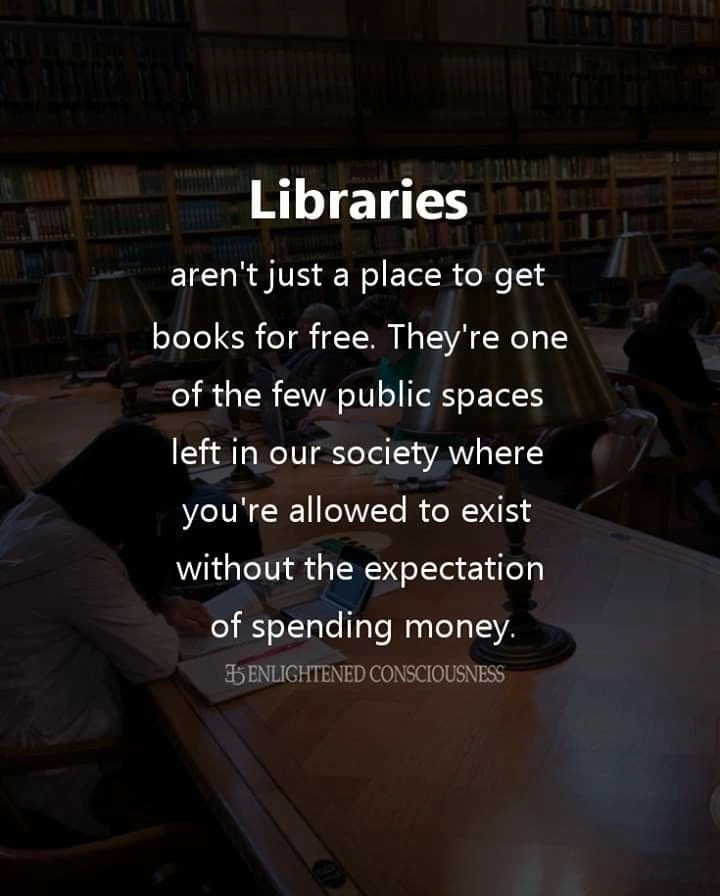
Save the libraries…
I saw a stand up comic yesterday who was talking about banning books vs. banning guns. She said: When a transgender person beats some kids to death with To Kill a Mockingbird, then we will worry about it. Til then, concentrate on the guns.
The Future Of Ideas - THE FATE OF THE COMMONS IN A CONNECTED WORLD

Aaron Swartz and Lessing
at the launch party for Creative Commons (2002)
"The Internet revolution has come. Some say it has gone.
What was responsible for its birth?
Who is responsible for its demise?"
"In The Future of Ideas, Lawrence Lessig explains how the Internet revolution has produced a counterrevolution of devastating power and effect.
The explosion of innovation we have seen in the environment of the Internet was not conjured from some new, previously unimagined technological magic; instead, it came from an ideal as old as the nation.
Creativity flourished there because the Internet protected an innovation commons. The Internet's very design built a neutral platform upon which the widest range of creators could experiment. The legal architecture surrounding it protected this free space so that culture and information - the ideas of our era - could flow freely and inspire an unprecedented breadth of expression.
But this structural design is changing - both legally and technically."
"This shift will destroy the opportunities for creativity and innovation that the Internet originally engendered.
The cultural dinosaurs of our recent past are moving to quickly remake cyberspace so that they can better protect their interests against the future.
Powerful forces are swiftly using both law and technology to "tame" the internet, transforming it from an open forum for ideas into nothing more than cable television on speed.
Innovation, once again, will be directed from the top down, increasingly controlled by owners of the networks, holders of the largest patent portfolios, and, most invidiously, hoarders of copyrights." — https://archive.org/details/TheFutureOfIdeas/page/n1/mode/2up
#book #copyright #patents #cartels
#internet #commons #creativity #publicaccess #CreativeCommons
#libraries #education #information #digitaltools
#LawrenceLessig #AaronSwartz
https://hachyderm.io/@molly0xfff/113131621250853489 molly0xfff@hachyderm.io - If you would like to bid on one of ten hand printed copies of this linocut print, all proceeds are going to the Internet Archive's Open Library.
https://givebutter.com/c/2cScHO/auction
#InternetArchive #OpenLibrary #libraries #linocut #printmaking
Internet Archive Loses on Appeal
Libraries can lend paper books for free but must pay outrageous fees to publishers to lend scans of paper books.
Remember: the Internet Archive owned paper copies of the books they lent. They scanned the paper book, and only allowed one person to view the scan at one time. Each patron had a limited time to view the book before other patrons had a chance. This is as close to lending the paper copy as possible without the patron actually touching the paper copy.
Publishers were upset because this digital lending gave them no more power, control, or money than they receive from selling paper books to libraries. Publishers rent ebooks to libraries in such a way that they get income from them constantly, and not just one time. Renting ebooks to libraries also allows publishers to spy on readers.
https://arstechnica.com/tech-policy/2024/09/internet-archives-e-book-lending-is-not-fair-use-appeals-court-rules/
https://torrentfreak.com/internet-archive-loses-landmark-e-book-lending-copyright-appeal-against-publishers-240905/
#books #ebooks #scanned-books #scanned-paper-books #rent #library #libraries #freedom #liberty #surveillance #control #power #greed
Appeals court seems lost on how Internet Archive harms publishers
Appeals court decision potentially reversing publishers' suit may come this fall.
According to Gratz, most of the questions for IA focused on "how to think about the situation where a particular book is available" from the open library and also available as an ebook that a library can license. Judges said they did not know how to think about "a situation where the publishers just haven't come forward with any data showing that this has an impact," Gratz said.
#internet-archive #ia #library #libraries #public-library #public-libraries #books #ebooks

#photography #libraries #books
- 17-Year-Old Stanley Kubrick’s Photos Of 1940s New York Prove That He Was Born Genius
Before Stanley Kubrick directed arguably some of the best movies ever made like '2001: Space Odyssey' or 'The Shining,' he was a simple teenager in New York looking for a job. But even then, when the 17-year-old got his hands on a photo camera, he couldn't hide the talent within.
I can finally say I've upgraded successfully to #Fedora40. It was not without hassle this time and it started with what seemed to be a system that did not even give me a prompt after #rebooting, although the update process had seemed to go smoothly and quickly. Luckily, the virtual screens were working and so I could #login to a #shell. Although #sddm didn't seem to be working, #kdm was and so I was able to open a desktop session, but only in #Gnome. There were still problems running #kde #programs such as #konsole and #korganizer as some #qt #libraries were missing. Installing those allowed the programs to run. Also, no #audio devices were being detected and so I couldn't play any clips, etc.
Today I found that #kwin was also lacking a library (#qtsensors) and so after that was installed and I rebooted the machine, I found that sddm was working again and so I could log in to the #kde session that I usually do. Also, the #sound issue was solved by removing the directory #wireplumber from ~/.local/state.
